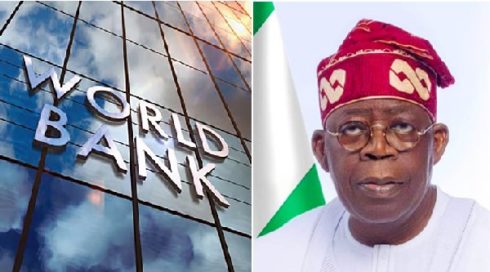The Federal Government of Nigeria has successfully secured a new $1.57 billion loan from the World Bank, aimed at addressing key development challenges in health, education, and climate resilience. According to an official statement released on September 26, 2024, the approved loans are part of three separate operations designed to support improvements in human capital and infrastructure across the country. This significant funding comes as the nation continues to grapple with rising external debt amid growing concerns over debt servicing costs.
The statement highlighted the World Bank’s commitment to addressing Nigeria’s critical issues in health, education, and climate adaptation. The loans are earmarked to enhance healthcare services for women, children, and adolescents, while also supporting initiatives that build resilience against climate-induced disasters such as floods and droughts. “The World Bank has today approved three operations for a total of $1.57bn to support the Government of Nigeria in strengthening human capital through better health for women, children, and adolescents and building resilience to the effects of climate change such as floods and droughts through improving dam safety and irrigation,” the statement read.
Breaking Down the Loan Allocations: Health, Education, and Governance
The newly approved $1.57 billion loan package will be split across three major programs designed to boost governance, healthcare, and water management. The loan package includes $500 million for the HOPE-GOV Program, which aims to tackle governance issues hindering the delivery of education and healthcare. The HOPE-PHC project, with a $570 million allocation, will strengthen primary healthcare systems, improving access to essential services for women and children. Additionally, the Sustainable Power and Irrigation for Nigeria (SPIN) project will receive $500 million to enhance dam safety and improve water management, which is crucial for combating climate-related risks.
The HOPE-GOV Program is designed to enhance governance in two vital human development sectors—education and healthcare—by addressing financial and human resource management inefficiencies. This program will directly benefit over 40 million people, particularly in vulnerable communities. “The Program will increase the availability and effectiveness of financing for basic education and primary healthcare service delivery, enhance transparency and accountability of financing, and improve recruitment, deployment, and performance management of basic education teachers and primary healthcare workers by federal, state, and local governments,” the World Bank explained.
SPIN Project: Combating Climate Change Through Irrigation and Hydropower
One of the major components of the $1.57 billion loan is the Sustainable Power and Irrigation for Nigeria (SPIN) project. This project, allocated $500 million, is designed to improve the resilience of Nigeria’s agricultural and water resources management systems. By enhancing dam safety and providing new irrigation and drainage services across 40,000 hectares of land, the SPIN project aims to safeguard communities from climate-induced disasters like floods and droughts. It will benefit approximately 950,000 people, including farmers and livestock breeders, who rely on efficient irrigation systems to boost agricultural productivity.
Additionally, the SPIN project will contribute to Nigeria’s efforts to harness its hydropower potential, further aiding in the country’s renewable energy ambitions. The project is expected to significantly increase agricultural productivity and reduce the adverse impacts of climate change. “Through the SPIN project, the government will develop a master plan for hydropower and a structured public-private partnership transaction for a hydropower project,” the statement added. The project will be implemented and supervised by the Federal Ministry of Water Resources and Sanitation.
Concerns Over Nigeria’s Rising Debt Amid Fresh Loan Approvals
While the World Bank’s approval of the $1.57 billion loan is seen as a positive step towards addressing key developmental challenges, it also raises concerns over Nigeria’s rising external debt. As of March 31, 2024, Nigeria owes the World Bank a total of $15.59 billion, according to data from the Debt Management Office. Under the administration of President Bola Tinubu, the country has now secured a total of $6.52 billion in loans from the World Bank. This has sparked debates about Nigeria’s ability to service these debts, given its growing external debt servicing costs.
The new loans come amid a series of previous approvals from the World Bank. Earlier in June 2024, the World Bank approved two loan projects totaling $2.25 billion, aimed at bolstering economic stability and supporting vulnerable populations. These include the $1.5 billion Nigeria Reforms for Economic Stabilization to Enable Transformation Development Policy Financing Program and the $750 million Nigeria Accelerating Resource Mobilization Reforms Program-for-Results. With increasing borrowing, many Nigerians are concerned about the long-term economic implications and the country’s ability to manage its debt portfolio effectively.
Table of Contents
Discover more from OGM News NG
Subscribe to get the latest posts sent to your email.














